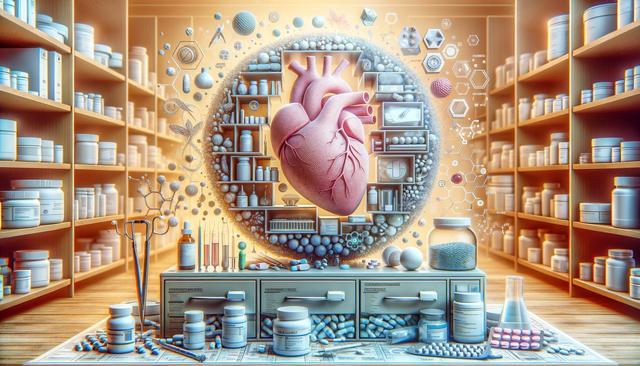Smart Medication Dispensers: Technology Meets Daily Health
One of the most noticeable shifts in medication storage has been the rise of smart dispensers. These digital devices go beyond simple pill organizers by integrating scheduling, reminders, and even remote access features. For individuals managing multiple prescriptions or caregivers supporting loved ones, these solutions offer greater peace of mind. By syncing with smartphones or digital assistants, smart dispensers help users stay on schedule without missing doses or doubling up accidentally. Key features often include:
- Automated alerts and reminders
- App-based tracking and dosage history
- Locking mechanisms to prevent overdosing
- Remote monitoring by authorized caregivers
Smart dispensers are especially valuable for aging populations, those with memory-related conditions, or anyone juggling a complex medication schedule. As we move into 2025, these devices are becoming more affordable and user-friendly, aligning with the trend of making healthcare management more accessible at home.
Climate-Controlled Cabinets: Protecting Medication Integrity
Another key trend is the growing use of climate-controlled storage solutions. Many medications are sensitive to heat, humidity, and light—conditions commonly found in bathrooms or kitchens where medications are often stored. Climate-controlled cabinets help maintain optimal temperature and humidity levels, preserving the effectiveness of prescriptions. These storage units are particularly useful for:
- Insulin and other temperature-sensitive drugs
- Specialty medications requiring refrigeration
- Vitamins and supplements prone to degradation
Advanced models now come with integrated sensors that provide real-time alerts if conditions fall outside the recommended range. Some also feature UV-blocking glass and tamper-proof locks, ensuring both safety and longevity of the contents. As people become more aware of how storage conditions affect medication potency, climate-controlled options are gaining popularity across households and care facilities alike.
Modular and Space-Saving Designs
In 2025, efficient use of space is influencing how medication is stored in homes, especially in urban environments where space is limited. Modular storage systems are being designed to fit into drawers, cabinets, or even under beds, making them discreet yet effective. These systems are customizable, allowing users to organize medications by time of day, type, or family member. Benefits of modular storage include:
- Improved categorization and access
- Reduced clutter and confusion
- Increased portability for travel or daily use
Some modular units also incorporate digital labels or QR codes, which can be scanned for instant access to dosage information, expiration dates, and refill reminders. This not only streamlines medication management but also supports better adherence to prescribed regimens, especially in households with multiple medication users.
Integrated Safety Features for Households
Safety continues to be a top priority in medication storage, particularly in homes with children or vulnerable adults. New storage solutions are incorporating advanced safety features to prevent accidental access or misuse. These include biometric locks, time-delay access, and compartmentalized designs that only dispense the correct dose at a scheduled time. Key innovations in this area also include:
- Child-resistant containers with smart locking mechanisms
- Voice-activated access paired with user authentication
- Logging systems that track every opening and closing
These features not only enhance security but also provide accountability, making it easier to monitor adherence and detect potential issues early. As more families seek to manage healthcare independently at home, these built-in safety measures are becoming essential components of modern medication storage.
Eco-Friendly and Sustainable Solutions
As environmental awareness grows, the healthcare sector is also embracing sustainability in medication storage. Manufacturers are developing eco-friendly containers and systems made from recyclable or biodegradable materials. Reusable packaging, refillable dispensers, and waste-reducing designs are all part of the effort to minimize the environmental impact of medication management. Some current approaches include:
- Compostable pill organizers
- Recyclable blister packs with minimal plastic use
- Subscription services that use reusable containers
Consumers are also becoming more conscious of how expired or unused medications are disposed of. Modern storage solutions often come with compartments specifically for expired items, along with guidance on proper disposal methods. These innovations not only support a healthier environment but also align with broader trends in sustainable living. Looking ahead, eco-conscious storage is expected to grow in popularity alongside other smart health technologies.
Conclusion: Embracing Smarter, Safer Medication Storage
The evolving landscape of medication storage reflects a broader movement toward smarter, safer, and more sustainable healthcare practices at home. From digital dispensers and climate controls to modular systems and eco-friendly options, these innovations are designed to make daily routines more manageable and secure. For individuals, caregivers, and families alike, adopting improved storage solutions can lead to better adherence, medication safety, and overall wellness. As we continue into 2025, staying informed about these trends can help ensure a more organized and health-conscious lifestyle.






